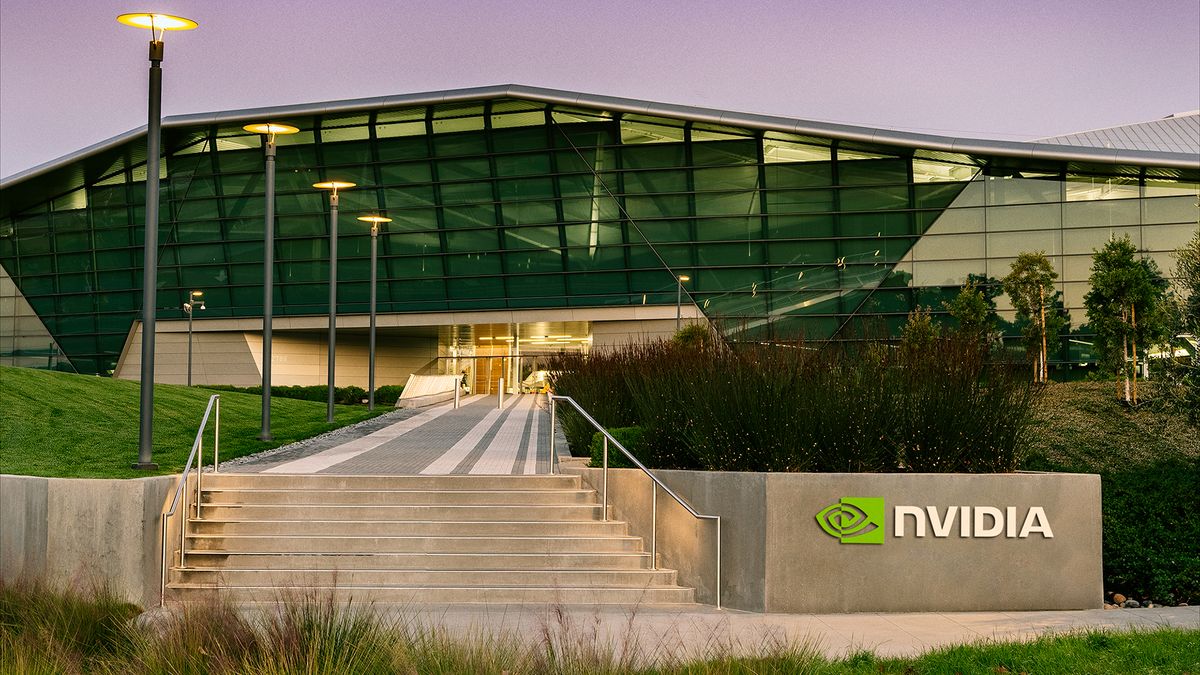- Nvidia is giving its newest AI chips to small cloud providers that compete with major players like Amazon Web Services and Google.
- The company is also asking these small cloud providers for the names of their customers, allowing Nvidia to potentially favor certain AI startups.
- This move highlights Nvidia's dominance as a major supplier of graphics processing units (GPUs) for AI, which are currently in high demand.
- The scarcity of GPUs has led to increased competition among cloud providers and Nvidia's actions could further solidify its position in the market.
- This move by Nvidia raises questions about fairness and competition in the AI industry.
Nvidia has reported explosive sales growth for AI GPU chips, which has significant implications for Advanced Micro Devices as they prepare to release a competing chip in Q4. Analysts believe that AMD's growth targets for AI GPU chips are too low and that they have the potential to capture a meaningful market share from Nvidia.
Nvidia beats estimates and increases guidance, leading to a positive market reaction and creating sympathy in other AI-related names.
Major technology firms, including Microsoft, face a shortage of GPUs, particularly from Nvidia, which could hinder their ability to maximize AI-generated revenue in the coming year.
GPUs are well-suited for AI applications because they efficiently work with large amounts of memory, similar to a fleet of trucks working in parallel to hide latency.
Nvidia's processors could be used as a leverage for the US to impose its regulations on AI globally, according to Mustafa Suleyman, co-founder of DeepMind and Inflection AI. However, Washington is lagging behind Europe and China in terms of AI regulation.
Nvidia's success in the AI industry can be attributed to their graphical processing units (GPUs), which have become crucial tools for AI development, as they possess the ability to perform parallel processing and complex mathematical operations at a rapid pace. However, the long-term market for AI remains uncertain, and Nvidia's dominance may not be guaranteed indefinitely.
Nvidia's record sales in AI chips have deterred investors from funding semiconductor start-ups, leading to an 80% decrease in US deals, as the cost of competing chips and the difficulty of breaking into the market have made them riskier investments.
NVIDIA has announced its support for voluntary commitments developed by the Biden Administration to ensure the safety, security, and trustworthiness of advanced AI systems, while its chief scientist, Bill Dally, testified before a U.S. Senate subcommittee on potential legislation covering generative AI.
Nvidia and Microsoft are two companies that have strong long-term growth potential due to their involvement in the artificial intelligence (AI) market, with Nvidia's GPUs being in high demand for AI processing and Microsoft's investment in OpenAI giving it access to AI technologies. Both companies are well-positioned to benefit from the increasing demand for AI infrastructure in the coming years.
French antitrust enforcers raided the offices of a business suspected of engaging in "anticompetitive practices in the graphics cards sector," with the Wall Street Journal identifying the targeted company as Nvidia Corp.
The European Union is investigating Nvidia's alleged anticompetitive practices in the artificial intelligence chip market, where the company dominates with an 80% market share.
EU antitrust regulators have not opened a formal investigation into chips used for artificial intelligence, despite the recent raid on Nvidia for alleged anti-competitive practices.
The European Commission is monitoring AI-driven chipmakers for potential anticompetitive practices, although no formal investigation has been announced.
Regulators are targeting chipmakers like Nvidia in Europe over concerns of illegal competition practices and the potential for them to dominate AI technology's supply chain, as the importance of computing power in AI adoption becomes apparent.
Chipmaker Nvidia, the current leader in the AI chip market, is facing competition from rival AMD, which aims to gain a significant share of the market and potentially displace Nvidia as the industry leader, as the demand for AI-friendly processors continues to grow and the AI revolution unfolds.
Nvidia's dominance in the AI chip market, fueled by its mature software ecosystem, may pose a challenge for competitors like AMD who are seeking to break into the market, although strong demand for alternative chips may still provide opportunities for AMD to succeed.
Nvidia's stock may face challenges and may need a new catalyst as its high valuation and the need for consistently reliable AI output present risks, making it tactically bearish.
Graphics processing unit (GPU) specialist Advanced Micro Devices (AMD) may not be a good investment for the artificial intelligence (AI) market, despite seeming like a bargain compared to rival Nvidia, due to the risk of both companies competing for the same AI niches and the broader AI market being affected by Nvidia's recent decline. The overheated AI narrative and an export crackdown on advanced processors also contribute to the concerns surrounding AMD stock.
